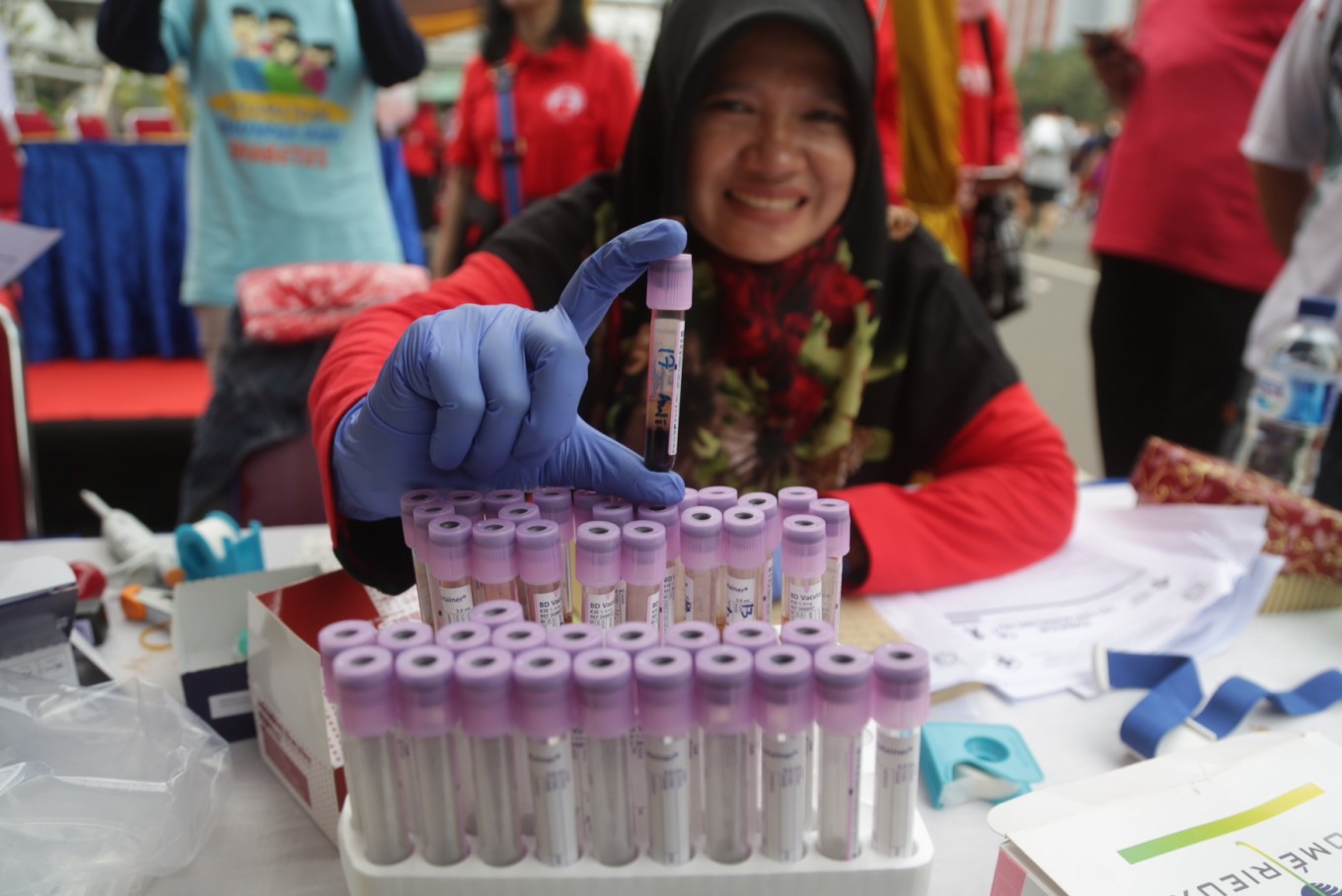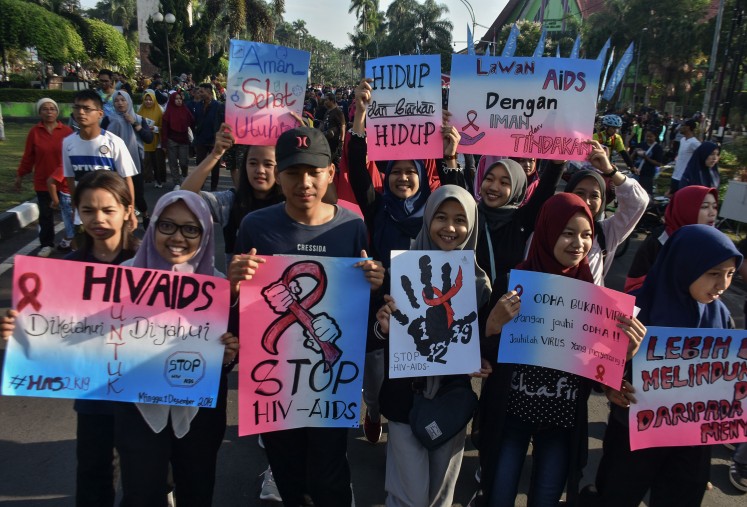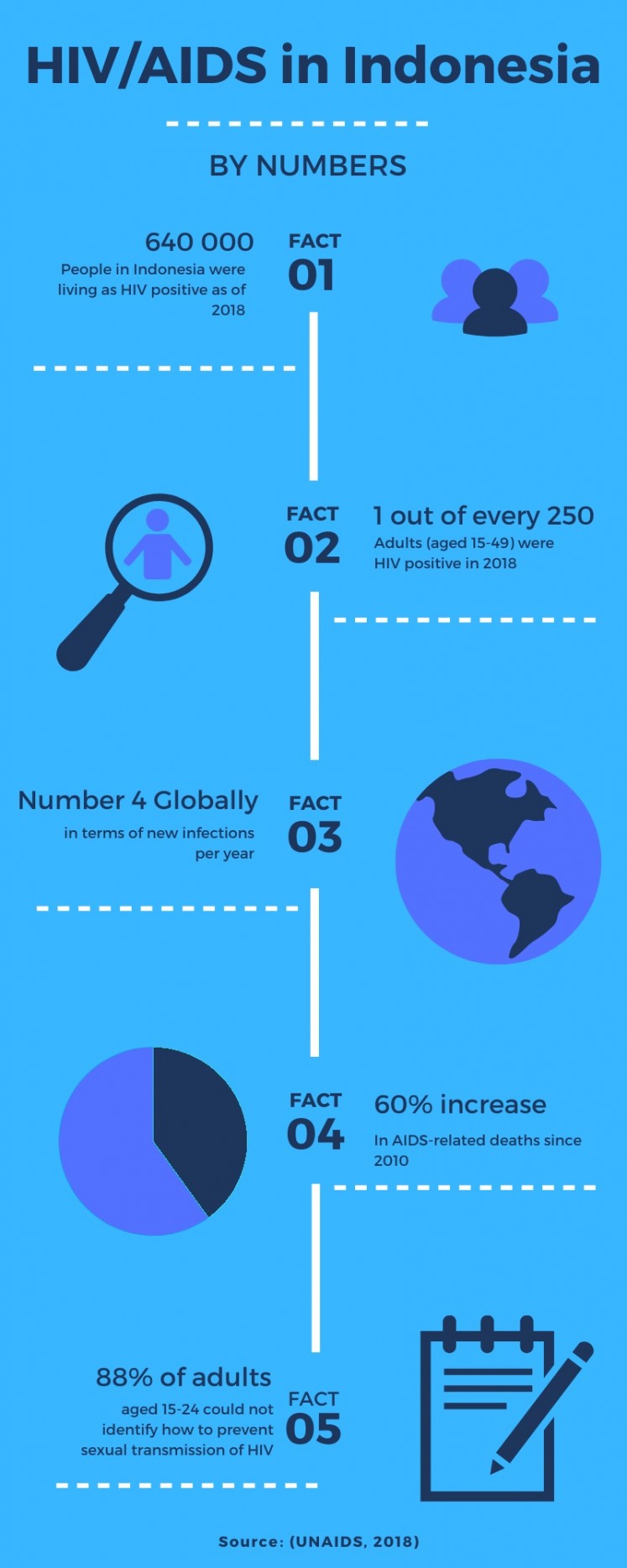Popular Reads
Top Results
Can't find what you're looking for?
View all search resultsPopular Reads
Top Results
Can't find what you're looking for?
View all search resultsFighting HIV with community-based sex education
Change text size
Gift Premium Articles
to Anyone
W
ith 73,000 new HIV infections per year, Indonesia currently has the fourth-highest infection rate in the world, and this is probably just the tip of the iceberg.
United Nations AIDS statistics indicate that only 11.37 percent of Indonesians aged 15 to 24 can correctly identify how to prevent the sexual transmission of HIV.
Clearly, there is a problem but the solution, however, remains murky.
Sex and HIV are difficult topics to raise in a nation with no formal provisions for sex education as well as growing societal conservatism.
A Jakarta-based academic from the University of Indonesia’s Psychology Faculty, Shahnaz Safitri, said this situation led curious children and teenagers to turn to pornography.
“Students as early as elementary school in rural areas today have quite easy access to pornography,” she said.
Because so many young Indonesians are not provided with baseline information about sex and sexual health, they also have ongoing misconceptions about HIV transmission.
Annual reminder: Students hold up HIV/AIDS awareness posters in commemoration of World AIDS Day on Jl. Besar Ijen in Malang, East Java, on Dec. 1, 2019. (JP/Aman Rochman)Despite the fact that HIV is only transmitted through needle sharing or specific sexual acts, there is still widespread fear among Indonesians of contracting the virus through hugging, swimming with or sharing cutlery with an HIV-positive person.
(UNAIDS/-)These attitudes and misconceptions exist not just in regular society, but even within the medical community, according to Asian studies scholar and anthropologist Sharyn Graham Davies, who also has – quite literally – written the book about sexuality in Indonesia.
Davies describes situations where pregnant, HIV positive women have been denied hospital treatment.
“The doctors and the nurses refused to allow the [infected] women into the hospital,” Davies said, adding that doctors and nurses often used excuses such as not wanting to be infected or not having the proper facilities to reject HIV patients.
Training doctors in HIV management is often not enough to reduce the social stigma associated with the virus, according to Indonesian Planned Parenthood Association (PKBI) monitoring and education officer Halimah Irna P.
“Even if the health practitioner is trained and is taught how to handle transwomen and people living with HIV, the people living with HIV themselves do not want to visit the health center because the neighborhood already stigmatizes people who go there,” Halimah said.
Experts on the topic agree that in order to overcome misunderstanding, better education is needed at each level of society.
Effective sex education programs must involve family and community members, according to Ni Luh Putu Maitra Agastya, a senior researcher at the Center for Child Protection and Wellbeing (Puskapa).
“Sexual health intervention has to start with the family, with the parents,” Agastya said.
“It is actually better to provide [children] with that information, instead of letting them find the information themselves.”
Part of enabling a community-based approach involves adopting current rhetoric and using it to show why sex and HIV education is morally good, according to Davies.
“Indonesia positions women as these really good, dutiful mothers. Could we position it in that in order for Indonesian mothers to be really good, they need to be able to have discussions with their children about sexuality, they need to be able to go to the doctor and ask for an STI test?”
Changes to the way sex and HIV are discussed and treated by society seem inevitable, and change is happening, albeit slowly.
Suksma Ratri, an activist living with HIV, has borne witness to some of these.
“In the past 13 years that I’ve been working on this issue, things are getting better,” said Ratri. “A lot of people, back when I was first diagnosed, they wouldn’t be open about their status, but nowadays people have more courage to be open.”
Holly Payne traveled to Indonesia with the support of the Australian government’s New Colombo Plan Mobility Program.













